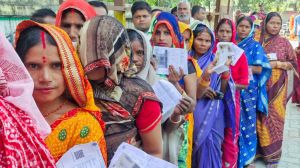Foreign airline entry in domestic sector dropped — Task Force
New Delhi, April 21: Prime Minister's Task Force on Infrastructure on Thursday dropped the controversial recommendation to allow foreign a...

New Delhi, April 21: Prime Minister’s Task Force on Infrastructure on Thursday dropped the controversial recommendation to allow foreign airlines to take equity participation in the domestic sector in view of a recent Cabinet decision on the contrary.
"In view of the recent Cabinet decision to continue the present policy (on participation of foreign airlines in the domestic sector) we have decided not to pursue it," K C Pant, chairman of the Task Force told reporters after a meeting.
The draft Integrated Transport Policy of the Task Force had earlier recommended "amending the domestic air transport policy to permit equity participation by foreign airlines in the companies formed for domestic airtransport operations."
Permission to allow foreign airlines in the domestic sector has been a bone of contention ever since government prevented Singapore Airlines to enter the sector through a joint venture with Tatas.
Pant said the Task Force would finalise the Integrated Transport Policy, integrating various modes of transport to meet the future demand, at the next meeting.
The Final Integrated Policy is likely to recommend rationalisation of rail fare structure in a phased manner and index it with fuel and wage costs, Pant said.
The task force also suggested increasing the share of rail freight from the current level of 40 per cent to 50 per cent by the year 2010, Pant said.
Pant said the issue of setting up an independent Railway Regulatory Board also came up for discussion but decision on the issue was postponed until the next meeting.
The policy has recommended, "augumenting capacity on high density routes and replacing overaged assets, facilitating reduction in asset failure, improvement in productivity and enhancing safety of rail operations," he said.
In addition the policy suggests focussing on creation of rail hubs with sufficient warehousing capacity to acclerate the programme of containerisation.
The task force also discussed other aspects in the draft aviation policy including upgrading of more airports to international standards, he said.
"The civil aviation ministry will consider how best toset up more international airports taking regional factors into account," Pant said.
Another aspect considered was the possibility ofincreasing the share of airport revenue emerging from non-aeronautical services such as shops and hotels not only for making many airports viable but also for generating surplus for further expansion and development of airports.
Pant said the policy aims to meet transport demand whichis expected to grow above nine per cent annually based on a GDP growth projection of 7.5 per cent per annum.
The task force is also looking at setting up an integrateregulatory framework for the entire transport sector, he said.



- 01
- 02
- 03
- 04
- 05




























